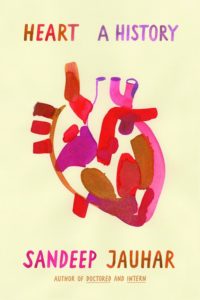
A new book argues that cardiologists have overlooked ‘Broken Heart Syndrome’ and its effects on heart

Heart break is painful and we all know that. But in some people this emotional distress can manifest in a medical condition called takotsubo cardiomyopathy, commonly known as broken heart syndrome.
The link between emotional health and heart health is the subject of a new book, “Heart: A History,” by Indian American cardiologist Dr. Sandeep Jauhar.
Dr. Jauhar argues that the field of cardiology needs to pay more attention to the emotional factors that can influence heart disease, like unhappy relationships, poverty, income inequality and work stress.
The role that emotional health plays in the occurrence of heart disease remains largely underappreciated, Dr. Jauhar says
People with broken heart syndrome — also called takotsubo cardiomyopathy or stress-induced cardiomyopathy — experience sudden, intense chest pain, along with shortness of breath. Although this can feel similar to a heart attack, the syndrome does not cause blocked arteries.
 In his new book, Dr. Jauhar traces the history of cardiovascular surgery in the late 19th century, cutting open patients to deftly repair acute wounds with needles and catgut before quickly closing them back up to avoid heavy bleeding.
In his new book, Dr. Jauhar traces the history of cardiovascular surgery in the late 19th century, cutting open patients to deftly repair acute wounds with needles and catgut before quickly closing them back up to avoid heavy bleeding.
More complicated procedures, however, necessitated more sophisticated machinery. Surgeons needed a device that could take over the job of the heart so they could temporarily stop the organ from beating and cut into it to repair congenital defects and other chronic problems.
The role that emotional health plays in the occurrence of heart disease remains largely underappreciated, Dr. Jauhar says. He traces this to the landmark Framingham Heart Study, started in 1948, which followed thousands of Americans and pointed to important risk factors like cholesterol, blood pressure and smoking.
The Framingham investigators initially considered looking at psychosocial determinants of heart disease as well, but ultimately decided to focus on things that were more easily measured.
Dr. Jauhar suggests, bonding more to your loved ones, practising yoga and other exercises and following a healthy lifestyle will contribute to a healthy heart














Inform me new posts through E mail
Comments are closed.